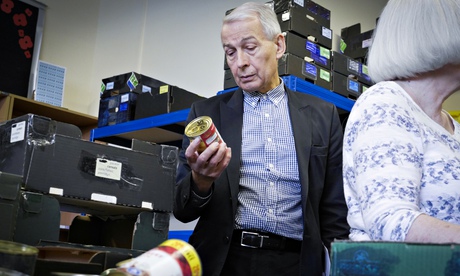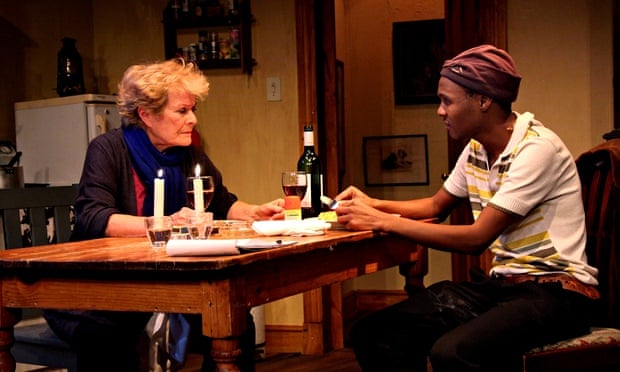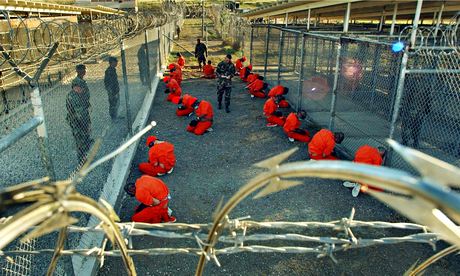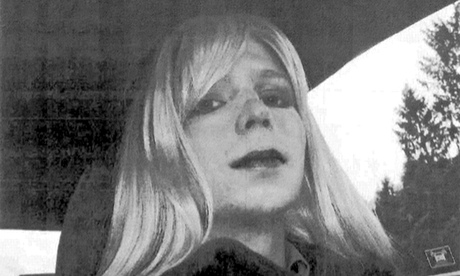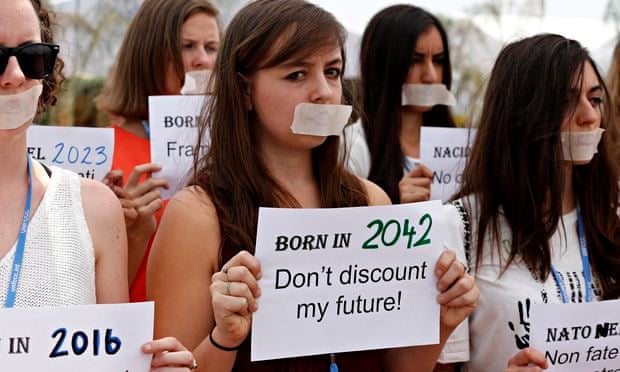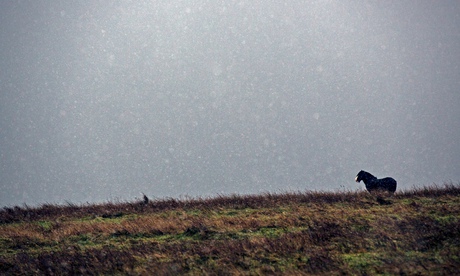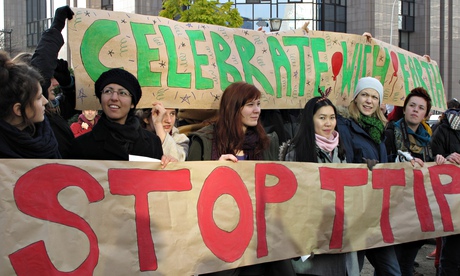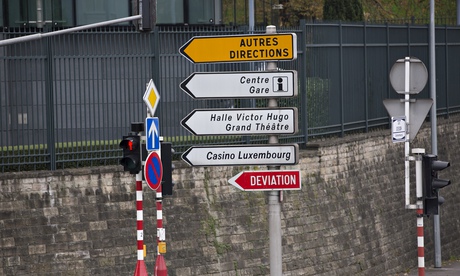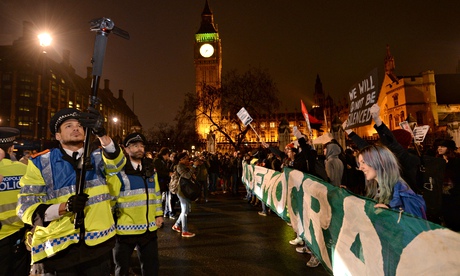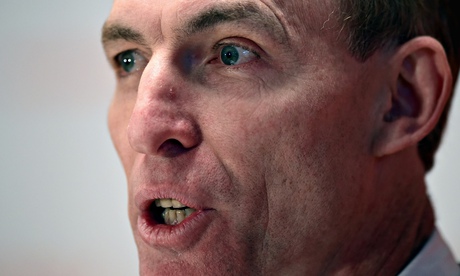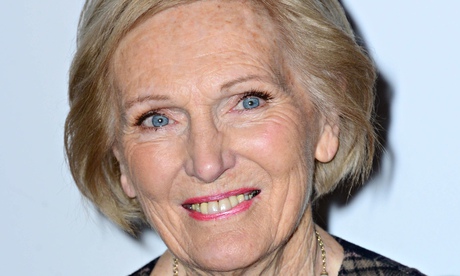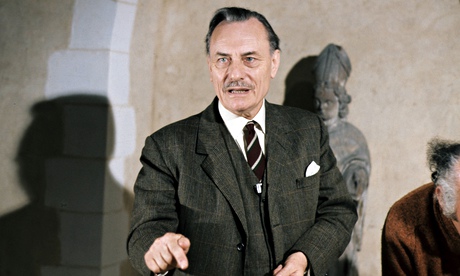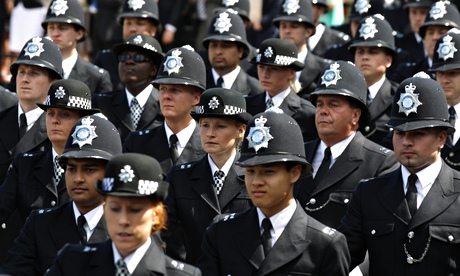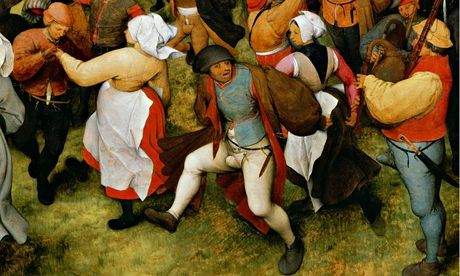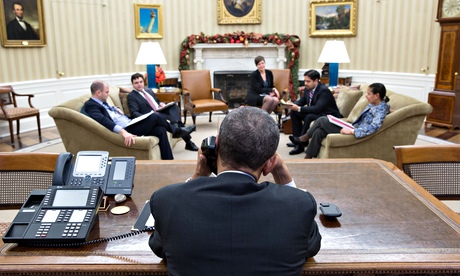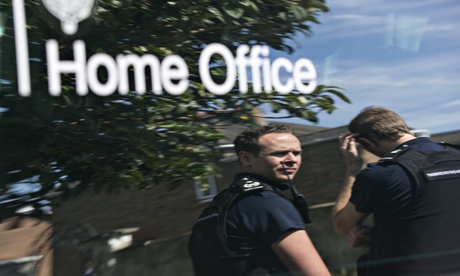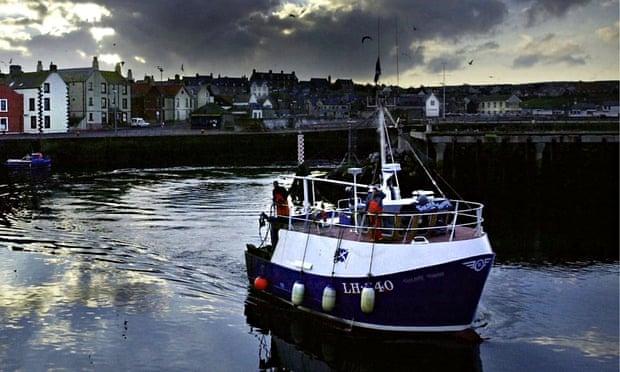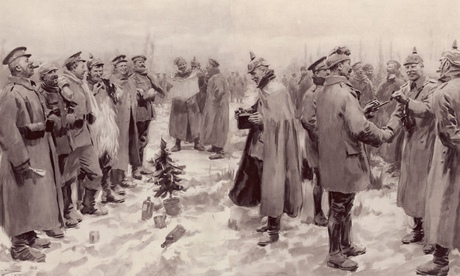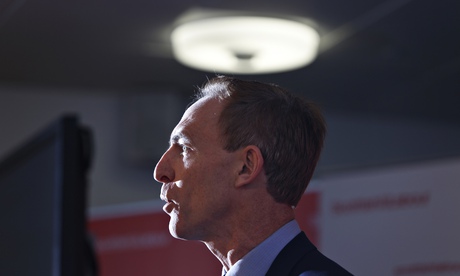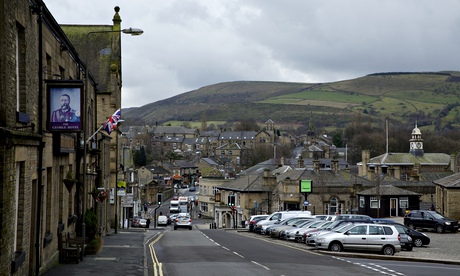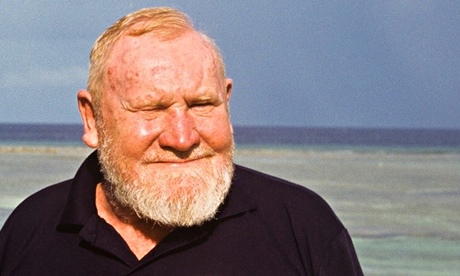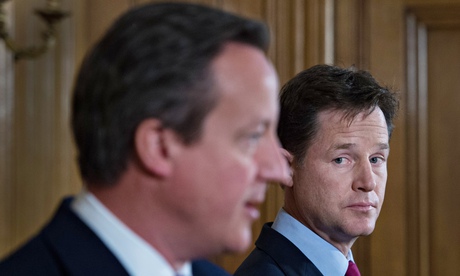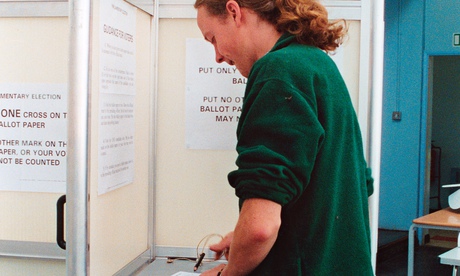2 December 2014 Bank
I still have arthritis in my left toe I am stricken with gout. But I go to the bank and the Post Office and the Market to Boots to buy a hot water bottle for Mary,
Mary’s back much better today, breakfast weight up rabbit for tea and her tummy pain is still there. We go to see the GP
Obituary:
Sabah was a Lebanese singer who perfected sentimental ballads and melodramatic movies but not the art of marriage

Sabah posing on a film set in Alexandria Photo: AFP/GETTY
5:36PM GMT 01 Dec 2014
Sabah, who has died aged 87, was a Lebanese singer who recorded more than 50 albums, acted in some 80 films, had 3,500 songs in her repertoire and was reported to have been married nine times; her stage name – meaning “Morning” – hinted at her fondness for a new dawn.
Along with the singers Fairuz and Wadih El Safi, and the composer Zaki Nassif, she was one of a quartet of Lebanese musical icons who were said to embody “joie de vivre à la Libanaise”. Sabah was considered daring and provocative, and she tested the boundaries of what was acceptable for a woman in the conservative Arab world. Although a Maronite Christian, she gained a popularity that transcended religious boundaries, even during the civil war of 1975–90.
As a singer she delivered joyful ballads such as Zay al Asal (“Your love is like honey”), Akhadou el-Reeh (“They took the wind”) and Habibet Oumaha (“Her mother’s love”). Her musical milieu was melodramatic and her personal life was riven by tragedy: her father was violent and controlling and her mother was murdered by Sabah’s brother (who suspected her of having an affair).
Sabah overcame these traumas to become the first Arabic singer to perform at the Carnegie Hall in New York, the Piccadilly Theatre in London and the Sydney Opera House.
Along the way she gained a reputation for being something of a diva. A glamorous performer, she was frequently compared to Cher and Madonna. There was great interest in her colourful private life and rumours swirled around her. One of her husbands was said to have divorced her over the length of her skirt; the Arab press expressed their shock when, in her seventies, she had a romance with a young winner of the Mr Lebanon contest; and a persistent rumour had it that she was secretly married to her hairdresser.
She was born Jeanette Gergis al-Feghali on November 10 1927 in Bdadoun, Lebanon, into a Maronite Christian family. As the third daughter of Gergis Feghali, who longed to father a boy, she claimed to have grown up scorned and neglected. “One day I was crying because they forgot to feed me,” she confided in an interview in 2012, “and one of my uncles told my parents that I had a beautiful voice when I sobbed.”
She released her first song in 1940, aged 13. The Cairo-based Lebanese filmmaker Assia Dagher signed her up and brought her to Egypt where she was given a three-film deal. “I’m proud that I’m a village girl,” Sabah recalled in 2008, “but I had a lot of ambition.” At first the Egyptian critics were far from friendly. However, after adopting the name Sabah, lifted from the character she played in her first Egyptian film, she gradually won over the public, appearing in movs alongside prominent Egyptian actors such as Anwar Wagdi and Salah Zoulfiqar.

Sabah on a film set in Giza, south of Cairo, in the 1950s (AFP/GETTY)
Another co-star was the matinée idol Rushdy Abaza, a notorious charmer who became her husband in 1977. They were divorced within the year. “I managed to win Rushdy’s heart and marry him at a time when he was coveted by all the women,” said Sabah. “I was the one who asked for a divorce because Rushdy was often too pompous and incapable of separating his public and private lives.”
Her success and longevity were partly due to her savvy choices in collaborators; she teamed up with some of the Arab world’s leading composers, including the Egyptians Baligh Hamdy and Sayyed Mekkawi, and Assi Rahbani of Lebanon.

Sabah in the mid 1940s with the Egyptian film star Anwar Wagdi during shooting in Cairo (AFP/GETTY)
Her films were distinctly hokey. Their titles testify to her affection for the swoon and swagger of romantic sagas and crime dramas: My Heart and My Sword (1947), The Express Train of Love (1947), My Father Deceived Me (1951), He Stole My Wife (1954). In The Second Man (1960) she played a cabaret singer who sets out to avenge her brother’s death. Perhaps understandably, familial strife was a recurring theme. She never transferred her success to Hollywood, but worked consistently in the Arabic film industry through the 1940s, 1950s and 1960s.
As she aged, Sabah’s flamboyant outfits, dyed blonde hair and surgically altered features invited mockery. Yet she remained a huge celebrity in Lebanon even after her retreat from public life. She spent her final years living quietly in the Brazilia Suites Hotel in the Beirut suburb of Hazmieh.

Sabah at an official function in Beirut in the 1990s (AFP/GETTY)
Sabah is thought to have been married nine times. As well as Abaza, her husbands included Wassim Tabbara, Ahmed Farag, Anwar Mansy, Nagib Shammas and Baligh Hamdy. Her last marriage, to the artist Fadi Lubnan, lasted 17 years.
She is survived by a daughter by Mansy and a daughter by Shammas.
“You want me to tell you what my secret is?” she said in 2012. “The secret that no one knows is that I am reconciled with myself and I worked very hard to be different.”
Sabah, born November 10 1927, died November 26 2014
Guardian:
Pre-charge bail was introduced 30 years ago to limit the freedom of individuals while police conducted further investigations. No restriction was put on the amount of time police can hold someone on pre-charge bail.
It has led to a perversion of justice where today more than 70,000 people are languishing on a form of legal limbo in England, Wales and Northern Ireland. More than 5,000 of those have been on police bail for more than six months. Innocent people have been left on pre-charge bail for years before their cases have been dropped or thrown out of court.
This is a scandal. Those on it have their careers put on hold. The mental anguish of not knowing what will happen to them is in itself a form of punishment without trial: the weight of suspicion grows heavier with each day. There is no right of appeal.
All these individuals are innocent until proven guilty. It is a fundamental axiom that justice delayed is justice denied. Home secretary Theresa May has called for a time limit. We believe it should be a maximum 28 days, reviewed by a judge and not by police. We welcome her words of support. Words must be turned into action. The government must act swiftly to right this wrong and we ask all political parties to strongly consider putting a 28-day limit on pre-charge bail at the centre of their general election manifestos.
Baron Daniel Finkelstein Associate editor, the Times
David Davis MP Conservative, Haltemprice and Howden
Dominic Raab MP Conservative, Esher and Walton
Janet Street-Porter Editor at large, Independent on Sunday
John Hemming MP Liberal Democrat, Birmingham and Yardley
Nigel Evans MP Conservative, Ribble Valley
Frances Crook Chief executive, Howard League for Penal Reform
Gavin Millar QC Media lawyer
Roy Greenslade Professor of journalism, City University London
Baroness Elizabeth Butler-Sloss Former Lord Justice of Appeal
Jon Robins Editor, Justice Gap
Sir Edward Garnier QC MP Conservative, Harborough
Baroness Helena Kennedy QC Labour peer, civil rights campaigner
Damian Green MP Conservative, Ashford
Eddy Shah Publisher
Renate Samson Chief executive, Big Brother Watch
Caroline Lucas MP Green party, Brighton
Steven Barker Founder, Barker Gillette solicitors
Lord Brian Paddick Liberal Democrat peer and former Metropolitan Police deputy assistant commissioner
Matthew Elliott Chief executive, Business for Britain
Peter Tatchell Human rights campaigner
Andy McNab Former SAS sergeant and author
Lord David Craig Former chief of defence staff
Lord Guy Black Executive director, Telegraph Media Group
Baroness Jenny Jones Green party peer and member of the London Assembly
Andrew Caplen President of the Law Society
Milos Stankovic Former Major in the Parachute Regiment and victim of police bail
Graham Stringer MP
• Roy Greenslade writes that the police have declared war on journalists; I would add lawyers and campaigners to the list (Plebgate fallout: police appear to have declared war on journalists, 1 December). I am not going to defend the dodgy practices used by some journalists. However, the examination by the police of phone records of 1,700 people, including lawyers and journalists, surely cannot be legal.
The police appear to be using Ripa to snoop on journalists, lawyers and campaigners. Their database that monitors “domestic extremism” contains a file on me, an elected politician with no criminal record, who used to sit on the official scrutiny body for the Met. They are overreaching and misusing the powers they have.
If we are to restore trust in the Met, the mayor of London must hold them to account when they overstep the mark in this way. He should be asking the Met why they hold files on journalists and elected politicians on a database about domestic extremism. The mayor has said he wants the police to seek judicial approval before going after journalists’ phone records. As the man responsible for the Met police he should get them to seek judicial approval as a matter of course and lobby government to make this change permanent.
Jenny Jones
Green, London Assembly
• Devolution of the justice system should be seen as a positive step towards creating a court system which is fit for the 21st Century and fit for London (Mayor seeks control over London’s court system, 1 December). Our research, Better Courts, shows that when decisions about courts are made locally, not from Whitehall, they are more innovative, better coordinated and more effective at reducing crime.
London can learn from other leading world cities, like New York. There, through local accountability and coordination, judges, policy-makers and agencies have been able to concentrate efforts to tackle repeat offending. New York City has transformed itself from one of the most dangerous cities in the US to one of the safest.
The problems our courts face are specific to the areas they serve. What might make sense in London might not work in rural Norfolk or Cumbria. Judges are key to effective local courts and are better placed to manage them. Central control misses the point. Judges should lead local efforts to reduce crime and guarantee meaningful justice.
Phil Bowen
Director, Centre for Justice Innovation
• Boris Johnson’s proposes to make the crown prosecution service in London answerable to him as the Metropolitan police already are. The current record of the CPS when it comes to prosecuting police misconduct is feeble enough. Look at its failure to pursue cases of deaths in police custody or by police marksmen. How much more feeble would its oversight of the police be if it were accountable to the police’s own head? What is needed for improved police and legal system accountability is the removal of the monopoly on prosecution held by the CPS and the creation of an independent, truly powerful, oversight body for all the institutions empowered to use force against citizens.
Nik Wood
London
Concerns that apprenticeships are no longer focused on young people are misplaced (Report, 1 December). Only 6.25% of apprenticeships currently go to workers aged over-50 – one of the few publicly funded forms of training available to older people. At a time when the pension age is rising and will require people to work to the age of 66 by the end of the decade, it is more important than ever that older people have access to the training opportunities that allow them to develop the skills needed to find and keep jobs. Just under 45% of all unemployed older people aged between 50 and 64 (153,000 people) have been out of work for more than a year and have little prospect of finding a job without training and other help.
Caroline Abrahams
Charity director, Age UK

19.41 GMT
Christine Smith (Country Diary, South Uist, 28 November) writes about the wrens sheltering from the cold in nest boxes. In the early 70s my father owned an old farmhouse just outside the village of Iden, near Rye in Sussex. There was a sudden severe cold snap one night near Christmas. We became aware as evening fell of a noise all round the house. Every bush and tree was alive with birds. They flew to the wall of the house and in a great wide river streamed up and under the eaves disappearing into the roof. The roof was huge and the wrens, for that was what they were, were, seemingly, endlessly streaming in. There were, I am sure, thousands. The house was later badly damaged by fire and the roof replaced. I’m sure access for birds was not considered. The original house was over 500 years old and I wonder if the wrens had built up their knowledge over hundreds of years and were coming from miles around. Now, that is all lost – nowhere to shelter and survive. It’s said wrens are among the most numerous birds, but I’m sure their numbers have declined in the last 40 years as access to buildings has been cut off. In the 70s we were unaware of the miracle we were seeing. We didn’t consider the astonishing fact that we were sharing our house with all those tiny bodies.
Christine Dixon
London
 Pro-independence demonstration in Barcelona in September. Photograph: Quique Garcia/AFP/Getty Images
Pro-independence demonstration in Barcelona in September. Photograph: Quique Garcia/AFP/Getty Images
I would like to make some remarks regarding your editorial on the so-called referendum in Catalonia (Spain has stonewalled too long on Catalonia. It’s time for Madrid to change its strategy, 11 November).
The basic principle of the rule of law demands that public powers acknowledge and abide by the concept of legality. In the case of Spain, that means we must respect our constitution and our courts. The Spanish government has not, as you say, “laid down that a formal vote on Catalan independence is unconstitutional”. The constitutional court, the highest authority on constitutional issues, ruled that the so-called referendum could not take place, and after that the Spanish government did what all democratic governments are supposed to do: uphold the law.
This is not a political decision, but a legal and constitutional fact. Moreover, last April 85% of the Spanish parliament, where national sovereignty lies, voted that the Catalan government has no power to call any such referendum.
Stating that the poll held on 9 November “showed an overwhelming majority for independence on a turnout of about 2.2 million” is, to say the least, a hasty conclusion. More than 70% of the Catalan electorate either did not bother to vote or voted against independence in this “symbolic vote”. But in any case it is a fruitless exercise to analyse the figures of a vote that lacks all legal and democratic guarantees.
The “British approach”, as you call it, cannot be applied to Spain, because the political and constitutional realities differ. Our written constitution (which was voted for by an overwhelming majority of Spaniards, including 90% of Catalans) enshrines the unity of the Spanish nation. It gives a huge degree of autonomy to the regions but not the right to self-determination of any part of the country – as is the case in all the written constitutions of western democracies. Therefore, the Spanish government cannot concede this right to one region, or even negotiate about it, without first reforming the constitution.
If the Catalan government really intends to seek a legal vote on independence, the Catalan parliament can certainly make a proposal to reform it, since that is the only legal path that can be used.
Federico Trillo-Figueroa
Ambassador of Spain to the UK
 Housing protest in east London: groups opposed to the pro-business consensus must come together under one umbrella, say Trevor Fisher. Photograph: Jess Hurd/reportdigital.co.uk
Housing protest in east London: groups opposed to the pro-business consensus must come together under one umbrella, say Trevor Fisher. Photograph: Jess Hurd/reportdigital.co.uk
Westminster politics is toxic, and with Ukip running riot and the growth of separatism sweeping Scotland and now even the Isle of Man, it is not surprising that many people want nothing to do with the manipulative and arrogant behaviour of our business-oriented politicians. The cynicism of the MPs reached new heights last week when the business select committee showed its colours by attacking 38 Degrees leader David Babbs for daring to question the secretive pro-business TTIP negotiations. The comment by chair Adrian Bailey, “You’re not here to challenge, you’re hear to be challenged”, in a forum broadcast by the BBC was revealing.
However, it will not do for these new protest groups simply to ask people to support their campaigns. With the four pro-austerity parties – Labour, Lib Dems, Tories and Ukip – dominating the Westminster agenda, the challenge needed is not to policies, but to a fundamental threat to the democratic process posed by these politicians. I receive appeals for money from 38 Degrees, Compass and other groups, but this will not do. Their activities are admirable (Report, 28 November), but without a united front they will be swept aside by the Westminster machine and the politics of greed. I will now only give money to a clear and co-ordinated attempt to challenge the current Westminster pro-business consensus, bringing all the various groups together under one umbrella.
Trevor Fisher
Stafford
• Scotland wants independence. Britain may leave the EU. Chunks of our NHS being privatised. Demands for local income taxes. Our schools to be independent. Breaking up British Rail and our electricity supply industry, the consequences of which could become manifest this winter. Divide and rule is a bait suckers always swallow.
Bill Hyde
Offham, Kent
In response to Deborah Orr’s question on Black Friday (29 November) – how about, instead of displaying “unhinged hysteria” at our local electrical retailer and the like, next year we all quietly visit a local charity shop, donate one item each and purchase one item each?
John Shields
Huddersfield
• I cannot believe that large companies in our retail sector (Report, 1 December) are still not paying the living wage. It is about time this iniquitous situation was advertised on the television instead of their bloated and self-indulgent Christmas spectaculars. Retail workers work long at this time of the year, and they should be remunerated accordingly. We should banish forever the ghost of Christmas past.
Judith Daniels
Great Yarmouth
• Oil prices are now 40% lower than a few months ago, when the SNP was insisting North Sea revenue would bankroll independence. Why is the SNP silent on this matter now?
Chris Hardy
London
• If Stephen Linstead (Letters, 28 November) is so keen on English more closely representing “the spoken sound” why doesn’t he spell his name Steven Linsted?
Don Oldham
Budleigh Salterton, Devon
• Something can happen 24/7 or even 24/7/52 (Letters, 1 December). If it’s happening 24/7/365, it must be on another planet…
Jack Schofield
Cheam, Surrey
• I don’t fancy Emily Thornberry’s chances of getting her washing machine fixed when it goes wrong.
Peter Franklin
Epping, Essex
• Margaret Drabble (Letters, 1 December), please come back to Labour. Where would you go?
Tony Heyes
Crowthorne, Berkshire
Independent:
The general agreement in the press appeared to be that George Osborne’s £2bn promise of funding for the NHS constituted some form of electoral sweetener or “lollipop” for voters gearing their minds toward a general election.
Sadly, this follows four-and-a-half years of brutal cuts to our health services and in particular to our mental health services.
As someone who works in community mental health and who has had to navigate all tiers of the psychiatric system in recent months on behalf of a distressed family member, I have seen first-hand the ways in which this funding decimation has played out on the ground.
And George Osborne’s electoral lollipop has come too late for the distraught and desperate families and their many fine professionals pulverised into professional impotence and desperation by an austerity programme that has savaged equally the mental health services and the many people who are drawn into needing them.
It has come too late for the 16-year-old girl with mental health problems who was kept in police cells for two days because of a lack of care beds.
Mr Osborne’s pre-election lollipop has also come too late for the seven mental health patients who have killed themselves in England since 2012 after being told that there were no beds for them – and for the patient who was denied a bed and who then went on to kill his mother.
Such pre-electoral sweeteners are too late for the many affected by the 2,179 mental health beds cut since 2011. When mental health beds are cut, lives are lost. Sweeteners and lollipops are too late for the seven patients mentioned above.
However, these cuts are not too late for the one in five Coalition MPs with links to private health firms whose asset-stripping of the NHS presents a win-win scenario of both pleasing the public with pre-election lollipops and funnelling more funding to the private sector.
For the sake of the families of those seven people and for the many vulnerable people whose needs can’t be met outside the election period, we urgently need to chart a new politics of mental health provision where our desperately underfunded services finally receive parity with our partners in the developed world. As the election looms and Mr Hunt and Mr Osborne don the industrial high-visibility jackets and hard hats that have become the de rigueur electioneering costume, one might hope that they also stop in to a local mental health facility to see first-hand the damage that their neglect of the mental health agenda has wrought.
It’s the kind of damage that voter lollipops cannot put right.
Dr Carl Walker
National Health Action Party and European Task Force on Austerity and Mental Health
Worthing, West Sussex
Justice delayed is justice denied
Pre-charge bail was introduced 30 years ago to limit the freedom of individuals while police conducted further investigations. No restriction was put on the amount of time police can hold someone on pre-charge bail.
It has led to a perversion of justice where today more than 70,000 people are languishing in a form of legal limbo in England, Wales and Northern Ireland.
More than 5,000 of those have been on police bail for more than six months. Innocent people have been left on pre-charge bail for years before their cases have been dropped or thrown out of court.
This is a scandal. Those on pre-charge bail have their careers put on hold. The mental anguish of not knowing what will happen to them is in itself a form of punishment without trial. The weight of suspicion grows heavier with each day. There is no right of appeal. All these individuals are innocent until proven guilty. It is a fundamental axiom that justice delayed is justice denied.
Home Secretary Theresa May has called for a time limit. We believe it should be a maximum 28 days, reviewed by a judge and not by police. We welcome her words of support. The Government must now act swiftly to turn words into action.
Baron (Daniel) Finkelstein, David Davis MP, Dominic Raab MP, Janet Street Porter, John Hemming MP, Nigel Evans MP, Frances Crook, Gavin Millar QC, Roy Greenslade, Baroness (Elizabeth) Butler Sloss, Jon Robins, Sir Edward Garnier QC MP, Baroness (Helena) Kennedy QC, Damian Green MP, Eddy Shah, Renate Samson, Caroline Lucas MP, Steven Barker, Lord (Brian) Paddick, Matthew Elliott, Peter Tatchell, Andy McNab, Lord (David) Craig, Lord (Guy) Black, Baroness (Jenny) Jones
Media overkill on Black Friday
Your front-page photograph (29 November) of crowds fighting over a television, was presumably meant to illustrate the public hysteria generated by Black Friday.
However, a closer look at the photo reveals that there are eight customers vying for the television, with four store staff in attendance – and nine photographers (not including the snapper taking the picture) all crowding in to get the shot. More of a media frenzy than a public one.
John Rices
Brighton
Might Sir Bob save Myleene and Sol?
In the event of a Labour government and a mansion tax, could we encourage Sir Bob Geldof to come up with a charity single to help out Myleene Klass, Sol Campbell and others in their hour of need.
Mr Campbell seems a deserving case, as he would appear to be down to his last mansion.
James Dixon
Newcastle upon Tyne
Great education and small minds
I agree with much of Emma Fox Wilson’s letter (1 December) concerning the behaviour of Andrew Mitchell and David Mellor, but I believe the problem is more fundamental than “stupidity”. I think it is more a question of “great education but little souls”.
Stanley Tyrer
Greenmount, Bury, Lancashire
Move Parliament to the real world
Penny Mordaunt is the latest of a long line of politicians who seem to have destroyed their own credibility (and any future) by one ill-chosen speech to the House of Commons. Why do they do it?
Westminster is an odd, lonely place. No one appears to be listening to anyone else. MPs can spend a decade in Westminster failing to make any impact at all. In attempts to attract publicity MPs frequently go too far. One is put in mind of Lembit Opik.
Westminster is not, alas, a place where talent, ability or a worthy past are recognised. As someone who once worked for an MP and had a Westminster pass, I would move Parliament out of London altogether. Usually good people behave out of character there, and parliamentarians, both MPs and peers, would regain a sense of proportion if we took them out of London.
Nigel F Boddy
Darlington
It’s nice to see MPs with a sense of humour in this age of grey identical politicians, but I’m sad that Penny Mordaunt had to stoop to the level of the Bullingdon Club for a laugh.
If saying “cock” is the best our brightest MPs can do, then let’s observe two minutes’ silence to honour the passing of the political bon mot, backbench quip and Churchillian one-liner.
Ian McKenzie
Lincoln
Another man with rare vision
The discovery of another copy of Shakespeare’s First Folio (1623), almost 400 years after its publication, is welcome news. Writing from Paris, John Lichfield says that it is “one of the rarest and most precious books in the world” (report, 1 December). One can readily agree on the preciousness of the book, less so on its rarity, with 233 copies surviving. How would he describe a book of which only a dozen copies have survived? This is the case for Emeric Cruce’s The New Cyneas, published in Paris in the same year.
Long regarded as lost, it is now regarded as a work which pioneered the theory of free trade, and proposed (in the middle of the Thirty Years War) an organisation for world peace which in several respects is still ahead of the UN.
The only known copy in the UK of this remarkable work is in the Goldsmiths’ Library of Economic Literature in Senate House, University of London.
Dr Peter van den Dungen
Peace Studies
University of Bradford
Martin Wiggins states (1 December) that “we already knew” that Shakespeare was admired and studied by English Catholics.
What is intriguing is to know whether the Jesuits of St Omer equally admired and studied the works of Marlowe, Kyd, Peele, Middleton and Fletcher, as Shakespeare’s peers, well before Shakespeare became the acknowledged premier among them. In other words, what other playwrights’ writings are found in the library associated with the Shakespeare First Folio?
Thomas Merriam
Basingstoke
Times:
Sir, Matt Ridley appears to have a peculiar blind spot about automatic systems, especially in aviation (“This isn’t your captain speaking. It’s a robot”, Dec 1).
He says events likes Chesley Sullenberger’s ditching of his plane in the Hudson River are rare compared to “human error” catastrophes. But the action of pilots regularly prevents many unforeseen “human errors” becoming newsworthy catastrophes.
Aircraft are astonishingly complicated physical machines exposed to extremely complicated conditions. Does Ridley think they design, build, certify and maintain themselves? Every aspect of their existence and operation involves humans on the ground, who are just as fallible as pilots.
The 2010 Qantas A380 uncontained engine failure and 2008 BA B777 double engine failure are only two among the most spectacular of a catalogue of “impossible” events, the vast majority of which have never reached Ridley’s attention precisely because pilots succeeded in preventing them becoming catastrophic.
It’s relatively easy to remove humans in land-based transport: in the worst case the vehicle stops and you get out. Try that in an aircraft.
Pilots are human and they do make mistakes, just like every other group in a highly complex industry. The airline industry needs to do a lot better at balancing the combination of automation and on-the-spot human intervention.
Captain Steve Last
Air safety technical pilot (retired), Marlow Bottom, Bucks
Sir, While pilotless planes may well come about, one fallacy in Matt Ridley’s article is that removing the pilot removes the possibility of human error — it does not. Aeroplanes are designed and built by humans. Any pilotless aircraft has its software written by humans and entered into computer systems by humans. All of these actions are potential causes of error. Human error will always be there.
John C Pettit
BA captain (retired), Long Crendon, Bucks
Sir, Matt Ridley characterises the accident that befell Air France 447 incorrectly. The root cause was a failure of the pitot system which fed erroneous data to the automatic systems on which Ridley would have us rely. The accident can be attributed in part to human error because the crew did not diagnose or compensate for the failure of automatic systems which were in the process of crashing the aircraft.
And no machine would have elected to land on the Hudson River: only a human pilot could have followed that decision path. Reliance on drones raises new safety questions, not least of which is how to proof control systems against hijackers who may take over without even being on board.
Patrick Malone
Withiel, Cornwall
Sir, Matt Ridley’s piece calls to mind the prediction of a few years ago that soon every flight deck would be crewed only by a man and a dog. The man’s job would be to feed the dog; the dog’s job would be to bite the man if he tried to touch anything.
Clive Toomer
Emborough, Somerset
Sir, I was fascinated by Vanessa Gebbie’s letter (Dec 1) about her husband disagreeing with sat-nav instructions voiced by a female. Years ago, studies showed that pilots reacted more expeditiously to a female voice from warning systems. These are now in use. I can only conclude that either Mrs Gebbie’s husband was a pilot who was told to “pull up . . . pull up” too often or he has a rather different home life to many households.
Chris Brockman
Crowthorne, Berks
14
Sir, I was pleased to see Kevin Maher’s piece on wolf-whistling (Dec 1). As a woman well past the menopause, I remember with nostalgia a builder telling me that he whistled at all the women. He told me: “The young ones expect it and the old ones appreciate it.” Those were the days!
Moya Hermon
Kidlington, Oxon
Sir, Your item (News, Nov 29) extolled the virtues of teaching maths using pictures. Such ideas are not new, however.
Anyone who taught maths in the Sixties will remember Cuisenaire rods, which used Piaget’s theory and practice of allowing children to manipulate apparatus before they could move on to the abstract concept of numbers. They proved effective but the rods were, however, the bane of the tired teacher’s life when at the end of the day you had to scour the floor to find the tiny cube units.
Ann Tyas
Brampton Bierlow, S Yorks
Sir, It is important to get facts right before people outside Hong Kong, no matter how well meaning, rush to support the “pro-democracy” protest in the former British colony (“China stokes old tensions as MPs banned from Hong Kong”, Dec 1).
First, recent polls all indicated that a clear majority of people in Hong Kong do not support the continuation of the protest, which has caused disruption and challenged the excellent legal system that Hong Kong has established.
Second, when Hong Kong was under British rule, democracy was suppressed. There was never any form of election to select the chief executive, and the “governors” who exercised almost unopposed control were always appointed by the British government.
Jane Tam
Birmingham
Sir, Libby Purves (“Yes, there really are virtuous paedophiles”, Dec 1) makes her point well that those who remove themselves from temptation may be helped by psychological treatment. Yet those who deliberately choose the company of their victims are monstrous.
We are all sinners, and some sins become compulsions. In spite of this, we do have choice: a teacher can get out of teaching; a doctor can forgo the comforts of his practice by turning to research.
Those that don’t are monsters not by the strength of their compulsions or their remorse, but by the terrible harm they do. If they are not condemned and punished, what case is there for punishing any crime?
Vivian Crellin
Baldock, Herts
Sir, Elements of Libby Purves’s “better way” to help paedophiles seeking an offence-free life do exist in Britain. Since 2002, Circles UK has offered a community-based programme run with the approval of the police and probation service. Our volunteers support and monitor those seeking to overcome their inner demons.
Stephen Hanvey
Chief executive officer, Circles UK
Telegraph:
A time limit must be put in place to stop people languishing in a legal limbo
Pre-charge bail limits the freedom of individuals who are under investigation by the police Photo: ALAMY
11:05PM GMT 01 Dec 2014
SIR – Pre-charge bail was introduced 30 years ago to limit the freedom of individuals while police conducted further investigations. No restriction was put on the amount of time police could hold someone on pre-charge bail.
This has led to a perversion of justice where, today, more than 70,000 people are languishing in a form of legal limbo in England, Wales and Northern Ireland.
More than 5,000 have been on police bail for at least six months. Innocent people have been left on bail for years before their cases are dropped or thrown out of court. Their careers are put on hold, and the mental anguish of not knowing what will happen is in itself a form of punishment without trial. There is no right of appeal.
These individuals are innocent until proved guilty, but justice delayed is justice denied. Theresa May, the Home Secretary, has called for a time limit for pre-charge bail. We believe it should be a maximum of 28 days, reviewed by a judge and not by police. The Government must act swiftly to turn words into action.
Damian Green MP (Con)
Former police minister
Nigel Evans MP (Con)
Eddy Shah
David Davis MP (Con)
Caroline Lucas MP (Green)
Baroness Butler-Sloss (Crossbench)
Lord Black of Brentwood (Con)
Baroness Kennedy of The Shaws (Lab)
Lord Paddick (Lib Dem)
Frances Cook
CEO, Howard League for Penal Reform
Lord Finkelstein (Con)
Dominic Raab MP (Con)
Janet Street Porter
John Hemming MP (Lib Dem)
Chairman, APPG on Family Law and the Court of Protection
Gavin Millar QC
Roy Greenslade
Jon Robins
Editor, Justice Gap
Sir Edward Garnier QC MP (Con)
Renate Samson
Chief Executive, Big Brother Watch
Steven Barker
Matthew Elliott
Chief Executive, Business for Britain
Peter Tatchell
CEO, Peter Tatchell Foundation
Andy McNab
Lord Craig of Radley
Former RAF Marshal and Chief of Defence Staff
Baroness Jones of Moulsecoomb AM (Green)
Andrew Caplen
President, Law Society
Milos Stankovic
Graham Stringer MP (Lab)
The Home Office’s crackdown on migration; the universal post service under threat; private lives and open secrets at Bletchley Park; bootless Paddington, and feline IQ
The reforms mean that landlords and letting agents will effectively have to act as border guards Photo: Reuters
7:05AM GMT 01 Dec 2014
SIR – From today, landlords and letting agents in five council areas in the West Midlands will be required to check their tenants’ immigration status as part of the Home Office’s crackdown on undocumented migrants.
It’s hard to see how this policy will prevent a single undocumented immigrant from finding a home; though even if it did, it’s morally questionable to deny anyone such a basic human need as shelter. Rather, it will see already vulnerable tenants forced into illegal tenancies and poor housing conditions.
By conscripting landlords and letting agents as border guards, the measures create a new level of bureaucracy which can only be paid for by passing on the cost to ordinary tenants. Furthermore, it will drive discrimination, encouraging otherwise fair-minded landlords and agents to let to white tenants with British-sounding names, just to reduce the likelihood of additional bureaucracy from the Home Office.
Surely the political parties have to scrap this nonsense?
Alex Hilton
Director, Generation Rent
Natalie Bennett
Leader, Green Party
Graham Jukes
Chief Executive Officer, Chartered Institute for Environmental Health
Don Flynn
Director, Migrants Rights Network
Colum McGuire
Vice President (Welfare), National Union of Students
Alison Gelder
Chief Executive, Housing Justice
Duncan Stott
Director, PricedOut
Michael Bates
Manager, Birmingham Community Law Centre
Michael Collins
Coordinator, Right to Remain
Jabeer Butt
Deputy Chief Executive, Race Equality Foundation
Rita Chadha
Chief Officer, Refugee and Migrant Forum of Essex and London (RAMFEL)
Saira Grant
Legal and Policy Director, Joint Council for the Welfare of Immigrants
Mohammed Khaled Noor
Chair, Muslim Professional Forum
Ratna Lachman
Director, JUST West Yorkshire
Sonel Mehta
Founder, BritCits
Bob Green
Chief Executive, Stonewall Housing
Zrinka Bralo
Executive Director, Migrant and Refugee Communities Forum Movement Against Xenophobia (MAX)
SIR – It would seem that David Cameron’s raft of new rules and regulations relating to welfare benefits, immigration and immigrants will require hundreds, if not thousands, of new jobs to administer them. I wonder who will fill these positions.
Colin Pye
Stalham Green, Norfolk
SIR – Though I am no great fan of Mr Cameron, I do think he has hit the right note with his proposals on immigration and welfare.
While negotiations with France and Germany on free movement of labour will be futile, Mr Cameron can make Britain a less attractive prospect by curtailing welfare benefits for all immigrants.
Politicians in the rest of Europe will then be under intense pressure to follow Britain’s lead.
Graham Forbes
Koh Samui, Thailand
SIR – I hope that Mr Cameron’s excitement about curtailing immigration from the EU does not cause him to lose sight of details like the loss of our sovereignty and the eye-watering daily cost of our membership.
Derek Wellman
Lincoln
SIR – I note that EU migrants may soon have to sign in at police stations.
If any of them manage to find a police station still open, perhaps they would let me know.
Philip Moger
Preston, West Sussex
Prescriptions for pain
SIR – Your article on prescribing paracetamol clearly demonstrates that politicians such as the Conservative MP Nick de Bois are not to be trusted when making decisions based on headline figures without an understanding of the facts behind them.
Increasingly, doctors are prescribing this cheap and relatively safe painkiller instead of more expensive and more dangerous drugs favoured in the past, such as ibuprofen. Most paracetamol is prescribed for chronic pain and the cost of a month’s treatment – 224 tablets at a dose of two tablets four times daily – is not insignificant for some people. One must also take account of the fact that a maximum of 32 tablets can be bought at once over the counter, which means that these chronically ill people would otherwise have to go out to buy more tablets every four days.
David Williamson
Crewe, Cheshire
Sober thoughts

PA
SIR – I was interested in Hannah Betts’s piece on “dry January” (Weekend, November 29), but will someone please advise me what I can drink that is both non-alcoholic and exciting?
Fruit juice is too sweet and anything else too synthetic. Schweppes used to do a good dry ginger but that has been superseded by American ginger ale or Canada Dry. Fizzy water is dull and makes one prone to burp.
Julia Bishop
Leybourne, Kent
Universal post
SIR – A postal service that offers a uniform price to send a letter or small package to 29 million addresses within the United Kingdom six days a week is a feature of a civilised society, where services meet all circumstances at all times. This service is now threatened by unfettered competition.
As organisations that variously promote the interests of business and rural areas, we are all aware of the benefits competition can bring, both in terms of increased efficiency and better service. However, a situation where lucrative urban delivery routes are cherry-picked, leaving Royal Mail to cover the unprofitable rural areas, is not sustainable.
Ofcom’s own surveys of postal users’ needs shows that 65 per cent of people in rural areas and 69 per cent of people in deep rural areas would “feel cut off from society without the post”. This is mirrored by Royal Mail’s research, which shows that 89 per cent of Britons value the service.
Ofcom must accelerate its review of postal delivery competition. The impact of cherry-picking on the universal service has far-reaching implications for many small and large businesses, and for the quality of life of millions of British citizens.
The service can only be sustained through a legislative and regulatory framework that is actively supportive.
Sir Barney White-Spunner
Executive Chairman, Countryside Alliance
Graham Biggs
Chief Executive, Rural Services Network
Fraser Grieve
Director, Scottish Council for Development and Industry
Ann McGregor
Chief Executive, Northern Ireland Chambers of Commerce
Peter Ogden
Director, Campaign for the Protection of Rural Wales
Robert Lloyd Griffiths
Director, Institute of Directors Wales
Councillor Jamie Adams
Chair, Welsh Local Government Association Rural Forum
Rachel Gingell
Care and Repair Cymru
Black Friday chaos
SIR – Those organising sporting events or music festivals have to pay the police for their presence to help crowd control.
Last Friday, which was Black Friday – traditionally an American retail phenomenon – saw shoppers run riot in British supermarkets, with the police needing to be called. Given the promotional hype, such behaviour could have been foreseen.
Martin Watts
Chalfont St Giles, Buckinghamshire
SIR – It used to be said that what happened in America would happen here in 10 years’ time. Thanks to television and the power of advertising, the British people’s once admired self-control and ability to queue peacefully have gone for good.
Commander Alan York RN (retd)
Sheffield, South Yorkshire
Private lives and open secrets at Bletchley Park

Artistic licence: Alan Turing, as played by Benedict Cumberbatch in ‘The Imitation Game’ (AP)
SIR – The descendants of Commander Denniston (Letters, November 27) may perhaps take heart from the fact that the film The Imitation Game is so full of historical inventions that it must be regarded solely as entertainment. However, some of the inaccuracies go to the heart of the human story they have devised.
My father Peter Twinn worked closely with Alan Turing, sharing an office with him for many months. My father recalled that Turing’s homosexuality was well known at Bletchley and not considered an issue. He himself was once propositioned by Turing, but when he said that he was “not interested in that sort of thing” the matter was dropped without ill feeling, embarrassment or surprise for either party.
This throws grave doubt on the film’s thesis that fear of being “outed” was powerful enough to prevent Turing from exposing a Soviet spy and contributed to the pressure the mathematician was under. Once the urgency of the war was past, people returned to a more judgmental stance.
Stephen Twinn
Dorchester, Dorset
All drivers need to master the three-point turn
SIR – Who in the Driver and Vehicle Standards Agency was so foolish as to suggest abandoning the three-point turn in the driving test so that the test may reflect “real-life driving”?
This manoeuvre requires various skills that drivers should be able to demonstrate, such as spatial awareness, control of the clutch and brake, and steering ability.
Has no one from the DVSA been in a supermarket car park of late?
AHW Izod
Edenbridge, Kent
SIR – Just because something is hard to master is no reason to dismiss it. Anyone who cannot reverse into a small space or turn a car properly has failed to understand the car.
Peter J Smith
Croydon, Surrey
SIR – The general standard of driving is already poor and the new test is only going to exacerbate the situation. A colleague of my wife passed the test but was incapable of turning right, meaning that each journey had to be extended by several miles.
Bill Thomson
Birkenhead, Wirral
SIR – If the practical test is to be revamped, there should be an element that checks the ability to reverse 50 yards down a course the width of a single-track country lane.
It is becoming more and more common to encounter drivers in our local lanes who are completely incapable of reversing their cars into the nearest passing space. When they come up against a flock of sheep or a tractor with a trailer, they are in trouble.
Geraldine Wills
Chard, Somerset
The wisdom of cats

Millie the Bengal security cat on patrol at the warehouse of toy company Bandai (Rosie Hallam)
SIR – Pete Wedderburn’s article on the intelligence of dogs confirms what every pet owner knows: that animals are highly emotionally intelligent.
However, cats’ intelligence far exceeds that of dogs. Take our Bengal cat Zoe. She operates the DVD player, the waste disposal button and the patio door, and is a reliable alarm clock; she can hold an erudite conversation on most subjects and laughs at David Miliband. Not even an educated border collie could match that.
Jeremy Jacobs
Woking, Surrey
Rebuilding blocks
SIR – I find Lego extremely useful for repairing refrigerator shelves and the bridges of spectacles, with the application of a little adhesive.
An admirable, indestructible substance for the modern world.
Annabel Morgan
Churchill, Oxfordshire
Bear footed
SIR – While welcoming the return of Paddington Bear, I am distressed to see that he has lost his wellingtons. The original bear always had his boots on together with duffel coat, hat and suitcase.
The boots proved useful, as my son was an early walker and no wellies fitted, so we borrowed them from our Paddington teddy.
Fiona Drake
Hungerford, Berkshire
Fair warning
SIR – Nailed to a tree where a local garden runs close to a footpath is a vintage sign (Letters, November 29) which reads:
NO TRESPASSING
Violators will be shot.
Survivors will be shot again.
Jonathan Goodall
Bath, Somerset
Irish Times:
A chara, – When did certain concerts start becoming framed with the words “An Evening with . . . so and so”?
What do those words promise that an ordinary gig doesn’t?
When I hear somebody say they spent the evening with another person, it usually conjures something intimate, a meal, long chats over a few glasses of wine and maybe more.
So what exactly do you get at An Evening with Aslan? Does Christy Dignam gently touch your hand as you both pore over a dessert menu in a dimly-lit restaurant and whisper across the table to you “It’s just great, like, being with you, but I want to know, how can I protect you in this crazy world?”
Many evenings end with a taxi home. So, imagine you had, in the innocence of your heart, bought tickets for An Evening with Christy Moore.
As the evening in question drew closer you fantasised about how it might end, like many of the best evenings of your life with a cab ride home. There, in the dark of the back seat Christy would turn to you, put his arm on your shoulder and intone in his barrel-deep Prosperous voice “Well, howz-it-goin’-dere, it’s true you ride the finest horse I’ve ever seen . . .” Of course these evenings are always a bitter disappointment.
You arrive to the agreed rendezvous, say the Olympia or Vicar Street, and you soon realise that both of these cheeky Christys are way beyond just double dating, they are in fact polygamous performers promising intimacy to a packed venue.
So you sit salty eyed through the show, jealous of the audience and realising that you are not the only one. – Is Mise, etc, BILLY Ó hANLUAIN Kimmage, Dublin 12.
Sir, – The recent revelation (“Mortgage group apologises for data breach involving over 1,000 customers,” December 1st) that lobby group New Beginnings has passed debtor information to a so-called “vulture fund” is a reminder of the power given without question to these self-appointed spokespeople.
It is incredible that a group ostensibly set up to protect the homes of Irish families from repossession is now liaising with foreign speculators while ordinary families in Ireland cannot afford to buy homes.
Similarly, we see the presumptuously titled Irish Mortgage Holders Organisation announce plans to enter the mortgage brokering business – with all of the conflicts of interest that entails.
These two organisations style themselves as representative bodies yet they do not allow membership to the public and are incorporated as limited companies. They have been allowed to portray themselves as Robin Hood-type groups – now it is clear the reality is considerably different.
Far from offering a “new beginning” their back-room dealings are reminiscent of the worst of Irish life over the last decades.
The lack of scrutiny up to now reflects poorly on Irish journalism. – Yours, etc, MATTHEW GLOVER Lucan, Co Dublin.
Sir, – Minister for the Environment Alan Kelly has attracted some criticism over the weekend for apparently over-ruling civil servants when deciding on spending on greenways, specifically with regards to the route along the disused rail line that links Mullingar to Athlone.
For too long planning of walking and cycling infrastructure has been too localised, with short bits of trails going from nowhere to nowhere and often seemingly designed to do nothing more than allow TDs to be seen to fund local projects.
I welcome the fact that a Minister had the courage to over-ride such small-minded thinking and allocate funds to allow for the construction of Ireland’s first long greenway linking Dublin to Galway, of which Mullingar-Athlone is an integral part.
Cycling tourism is a huge growth area worldwide, with cycling often described as the new golf.
A Fáilte Ireland survey in 2006 found that we had no penetration in this market, but nothing was done by successive ministers in the interim.
Survey data from this year shows that 11.5 million German tourists alone would consider taking a cycling holiday in Ireland if we had sufficient mileage of interconnected infrastructure. Because of lack of vision by government, we have just a few short cycle trails that only sustain local amenity and short-stay cycling; nobody is going to spend a week cycling up and down the Great Western Greenway like a hamster in a wheel, nice and all as that short trail may be.
Any notion that tourists or Irish leisure cyclists are interested in holidaying along main roads is clearly delusional, but that thinking still drives much of our tourism policy. We lack the off-road infrastructure that is the norm elsewhere.
That Mr Kelly had the courage and the foresight to map out a trail right across the country as a way of getting us started in this lucrative business, bringing jobs and local amenities to dozens of small places, is something to be lauded, not criticised. – Yours, etc,
JOHN MULLIGAN Kiltycreighton Boyle, Co Roscommon
Sir, – A 68 cent stamp on a letter to Santa (Letters, December 1st)?
Does this mean the Republic of Ireland has laid claim to the North . . . Pole? – Yours, etc, ERIC O’BRIEN Douglas, Cork.
Sir, – While no member of my family is or was a secondary-school teacher, and while I do not want my daughter hanging around the house today any more than any other parent does, I nevertheless feel compelled to support the teachers.
Firstly, no one doubts that a system based solely on rote learning needs reform. Presumably the main players in a consultative process with this aim would be those who are actually engaged daily in this very system. So who exactly came up with the new proposals? Patently not the teachers.
Secondly, while in theory project based learning sounds ideal, how does one really make that system objective and standardised. There is the very real problem of parental involvement, which biases the outcome towards students in areas with higher overall educational levels.
Then there is the problem of relativity. Take two children, one from an academic, affluent school, the other from an inner city disadvantaged school. If they both achieve A grades on a given project relative to the other students in the class, are these grades really comparable, or are they purely relative to the overall standard of their particular schools? Both grades represent laudable achievements , but what they do not represent is an objective standardised system, so let’s not pretend they do.
Maybe the answer is to stick with project-based learning assessed by the students’ own teachers. But let’s not call this a national Junior Certificate, because it will not be. – Yours, etc, SUSAN FITZGERALD Blackrock, Co Dublin.
Sir, – I am in favour of introducing some project work into curricula, but having too much of it could be detrimental and unmanageable, very hard to objectively access and not necessarily good for the learning process.
The fundamentals in any discipline have to be learned. Fears that the baby could be thrown out with the bathwater are very well grounded. – Yours, etc, CORA STACK, Institute of Technology Tallaght, Dublin. Sir, – Primary-level teachers, who are very close to their pupils, are able to give them all their assessments and grades, which may well influence their educational choices.
Third-level teachers, who often aren’t even trained as educators, are able to give their students all their grades that decide their level of degree and, frequently, their choice of career.
But why is it that second-level teachers, who claim to be highly-trained professionals, are unable to award even 40 per cent of the marks in an exam that is of little or no importance to students’ futures? – Yours, etc, KEVIN T RYAN, Castletroy, Limerick. A chara, As a teacher of 41 years standing, I would like to think of myself as being as fair and as unbiased as the next.
However, I would not trust my own impartiality and may be already mentally and emotionally hard-wired to favour: my immediate and extended family; the children of friends and colleagues; children from dysfunctional families who are barely able to hang on; children who have experienced trauma or bereavements; the guys who try hard but never seem to get it quite right; the witty guy who is always in good form; the fine athletes; the academically gifted who are prone to make the odd mistake and,of course the children of Johnny, the local mechanic who would never let you down. – Yours, etc, GEARÓID Ó CIARÁIN Terenure, Dublin 12.
Sir, – As a retired teacher I strongly believe that teachers and students can benefit from the proposals on assessment for Junior Certificate.
Assessment is a core teaching responsibility and an integral part of effective learning. The proposals will give teachers and schools greater ownership and responsibility for teaching and learning, thereby promoting increased teacher collaboration in schools.
My main concern is that schools and teachers be given time to do the work. The lack of structured planning time is a major weakness in our second-level system. – Yours, etc, DESMOND MOONEY Newtownforbes, Co Longford.
Sir, – Dave Kavanagh has trouble with the term “all-island”. (Letters, November 28th). Could there be a country on the face of this earth with so many options for what the totality, its regions, particularly the northern one, even for one of its cities are called?
The term “North of Ireland”, for instance, has crept into common parlance in recent years. This now seems to be a generally accepted code for those who think they are staying on-side, striking a blow for freedom by refusing to say Northern Ireland, just as some on the non-conformist wing of politics refuse to say the “Republic of Ireland”, they prefer “Free State”, “26 counties” or “the South”.
Yes, Mr Kavanagh, “all-island” is a usage which takes the sting out of the well-worn and legitimate and long-established all-Ireland label, with its sporting connotations. If there is ever to be peace on this island, perhaps a starting-point would be that we all stop using language which knowingly rubs salt into smarting wounds. The unionist population of Northern Ireland will cling to their preferred name for the place they love and call home, and all the linguistic acrobatics in the world won’t change that.
The “majority” population of the island would do well to respect that. Time we were all a wee bit kinder to each other? – Yours, etc, PADDY McEVOY Holywood, Co Down.
Sir, – The latest figures released by the HSE forecasting that the OPD [Outpatient Department] appointment delay is set to continue till 2015, and that the trolley figure is going to rise, comes as no surprise to me, a doctor working in a hospital in Dublin.
There is an elephant in the room – this country desperately needs more doctors .
Previously doctor shortage was experienced in peripheral Irish hospitals but in the last one-two years the effect is felt in major hospitals in Dublin also. OPD appointments are regularly being cancelled, clinics being shut down and no acceptable candidates are found despite repeated advertisements for new posts in so-called big hospitals in the capital.
On one hand, this country is failing to retain Irish-trained doctors due to poor working conditions. On the other hand, clauses of the Medical Practitioners Act 2007 with restrictions on training jobs for non-EU medics, and the delayed response of the Irish Medical Council to the plights of foreign doctors, prevent qualified non-EU doctors from coming to Ireland.
Often people complain of the delays and even vent their frustrations at the apparent malfunctioning of the health system on us. Unfortunately we doctors have to bear the brunt of patients’ completely understandable wrath about the health policy failure.
The only silver lining is that unlike his predecessor the current Minister for Health, Dr Leo Varadkar, seems to have identified the problem and is apparently ready to consider the amendments of the Medical Practitioners Act. The sooner the law is amended the better.
Until then unfortunately patients would suffer unless they protest and demand an urgent solution for this stalemate like what people did for water charges. – Yours, etc, DR SHAKYA BHATTACHARJEE Shanganagh Cliffs, Dublin 18.
Sir, – The Government approach to general practice in this country has achieved much media attention.
The crisis continues however and very little other than “spin” has been given to solving the crisis. Most newly-qualified GPs are leaving our shores. For the first time in the history of our State near-retirement GPs are also leaving to take up more lucrative jobs abroad.
Over 30 GP posts remain unfilled in this country today. The Government talks about primary care but what it really talks about is care without general practice. It is hoping that the foundation under which primary care works the GP is not actually needed.
This health policy will leave a generation of Irish people with poor, substandard primary care. It will increase exponentially the cost of secondary care. No doubt in 10 years we will commission another report from the very health administrators that are deciding on this course of action. – Yours, etc, DR TADHG CROWLEY Ayrfield Medical Centre, Kilkenny.
Sir, – The recall of the United Arab Emirates’ ambassador to Ireland, Khalid Nasser Rashed Lootah, is to be commended (“UAE recalls ambassador who treated women ‘like slaves”, December 1st).
However, the €240,000 award made by the Employment Appeals Tribunal to three Filipina women employed by the ambassador, and his wife Mehra Metad Alghubaisi, should be paid immediately as justice delayed is justice denied. Diplomatic immunity, as claimed by the ambassador, is not acceptable in these circumstances of gross injustice.
The United Arab Emirates has the seventh largest reserves of oil in the world and the 17th largest gas reserves.
With such wealth at its disposal, there is no reason why this just award should not be paid, as a matter of urgency, to these three exploited women. – Yours, etc, BRENDAN BUTLER, Malahide, Co Dublin.
Irish Independent:
Dr Patricia Gordon, in her recent letter (Irish Independent, November 24), raises the perennial question, ‘What is the point of education’, revisiting the endless debates about what to teach and how to teach it.
In the midst of the interminable soul searching, teachers find it hard to sustain their enthusiasm, being overcome by innovation fatigue as the latest wheeze becomes the new orthodoxy.
The emphasis on life skills is admirable but tends to be rooted in all kinds of unwarranted assumptions. For example, current talk of thinking skills is based on the idea that thinking is an exercise of the mind that cuts across all subjects taught. There is a similar difficulty with the notion of problem solving. Thinking and problem solving vary in character in the different disciplines. Problem solving in art or history, for instance, is very different from problem solving in science or mathematics.
Furthermore, there is a marked distinction between theoretical and practical reasoning. The former is concerned with learning what is true about the world, whilst the latter is concerned with learning how to do something, including how to learn.
With regard to assessment, Dr Gordon rightly emphasises its function in tracking students’ attainment and in letting them know how they are progressing.
What seems more crucial, however, is the uncovering of students’ barriers to learning in order to open doors for them.
In recent years, there has been a significant emphasis on what is called Assessment for Learning. This is where assessment aims to light up the world of the pupil, focusing on how well they are engaging with what is being taught and what they could do to improve their habits of attention and perseverance.
Hitherto, the feedback provided to pupils has tended to be solely about their attainment and rarely about their learning.
However, what we all need to guard against is the belief that if new words are introduced into the education world there is a new determinate reality attached to them.
Philip O’Neill, Oxford, UK
Teachers’ strike: a student’s view
Today, the secondary schools of Ireland are closed for students. There will be no lessons learned in the classroom, but I guarantee lessons will be learned outside them.
The Department of Education and Skills will certainly learn just how unjust secondary school teachers feel the new demands on them are.
This strike is important for the teachers, but, of course, also for the students. The teachers are taking industrial action to stand up and have their say, but what about the students? Who speaks for us? Can you think of anyone or any body/organisation that does? Neither can I, because they don’t exist. Well, I’m standing up, I’m having my say.
First of all, I do not agree completely with the changes to the Junior Certificate. Having come out of the current style of examination, I have learned so much about how I, as a person, can deal with high-intensity tests, day after day, for a few weeks. It is a form of “mock” for the Leaving Certificate. The stress and panic surrounding the current Leaving Cert is already driving many adolescents to the brink – what would happen without any form of practice in this exam format in their formative years?
Secondly, I find it worrying how little knowledge and training teachers are being given in their relevant subjects. Teachers are being expected to teach what they themselves haven’t had explained to them.
Finally, I hope that major changes are made to the education system in Ireland, and soon, as most teachers would agree. However, these changes must be done right! They can’t be rushed and thrown together without enough thought. So, of course, it is accepted by everybody inside the classroom that radical changes must be made, but listen to us on what to change. Don’t ignore these protests, they’re not about money-grabbing teachers, they’re about the need for change, in the right way.
Mark Lynch (17), Co Kerry
Don’t take water for granted
Looking at the problems we are having with water today, I am reminded of my childhood growing up in rural Ireland.
We had to walk half a mile to a neighbour’s farmyard, to get water from a draw well about 50 foot deep.
When you got there, you had to lift a heavy stone slab off it (health and safety!), you then tied a rope to the handle of the bucket and threw it down to haul up the water. You usually brought two buckets home, to balance the weight, but you would be lucky if you got home safely with two half buckets of water – the rest you would have spilled down your legs and feet on the way home.
That was drinking water. We got water for washing from a barrel that collected rain water. In those days, people helped each other, we made the best of what we had, and if you did not have it, you learned to do without it.
I am not suggesting for a moment that we go back to those days, I just want to point out the pleasure that people get from helping each other.
Can I ask what are we doing when we allow women and young children to be homeless on our streets when we have greedy people wasting money hand over fist – there is something wrong here.
If we could only enjoy what we have, help people who are struggling and less well off and forget about the greed just think how much better off we would all be today.
Pat Kelly, Artane, Dublin 5
Coalition’s Sinn Fein bashing
It’s the little things that sometimes bring disaster. In 1963, in Britain, Harold Macmillan’s government was almost brought down because of a call girl’s affair with one of his ministers.
In 1972, in the USA, what seemed a small-time break in at the Watergate Building, followed by a truck load of lies, was the cause of Richard Nixon’s resignation.
The Irish Independent predicts there will be a general election next year. And, when they are defeated, Fine Gael and Labour may well have the cheek to ask ‘why were we not re-elected so that we could to inflict further pain on the electorate’?
Well, besides the new taxes every month or so, followed by Phil Hogan’s wonderful job setting up Irish Water, the way our Health Service has been handled, the care and compassion shown to the poor and homeless, and a million more things that could be added, in the end it was the attempt of the leaders of this Government to bring down Sinn Fein at all costs because of its rise in popularity that has brought them to where they are today.
The Coalition doesn’t realise that the only reason for this is that it’s the only way for the underprivileged to strike back at a Government which has broken every promise it made on its way to power.
People may not all vote for Sinn Fein come election time, but I know that they would vote for the Devil rather than this lot.
Fred Molloy, Dublin 15
In defence of Smith O’Brien
Your columnist Terry Prone really surpassed herself with her attack on William Smith O’Brien (1803-1864) 150 years after his death (Irish Independent, November 28). In my opinion, it was a “hatchet job”, with cheap shot after cheap shot: his education, treatment of his wife, political ideals, all scorned, and the coup de grace – child molester! You cannot libel the dead but you can certainly insult the memory of a noble Irishman with allegations of child abuse.
William Smith O’Brien’s place in Irish history is secure. He was an idealist who, despairing of the British government’s neglect of Ireland during the Famine, led the abortive 1848 rising, leading to his deportation to Van Diemen’s Land (Tasmania).
John Cussen, Address with editor
Irish Independent





 The A303 at Stonehenge in Wiltshire, where a tunnel is to built for the road where it passes the ancient monument. Photograph: Steve Parsons/PA
The A303 at Stonehenge in Wiltshire, where a tunnel is to built for the road where it passes the ancient monument. Photograph: Steve Parsons/PA Jim Broadbent – not as the Virgin Mary, but as WS Gilbert in Mike Leigh’s film Topsy-Turvy. Photograph: Allstar/Cinetext Collection/Sportsphoto/Allstar/Cinetext Collection
Jim Broadbent – not as the Virgin Mary, but as WS Gilbert in Mike Leigh’s film Topsy-Turvy. Photograph: Allstar/Cinetext Collection/Sportsphoto/Allstar/Cinetext Collection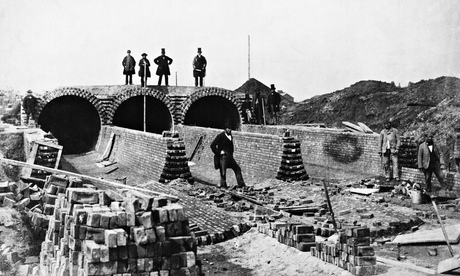 London’s Victorian sewerage system, while still in very good condition, now lacks the capacity to meet the needs of an ever-growing population. Photograph: Hulton-Deutsch Collection/CORBIS
London’s Victorian sewerage system, while still in very good condition, now lacks the capacity to meet the needs of an ever-growing population. Photograph: Hulton-Deutsch Collection/CORBIS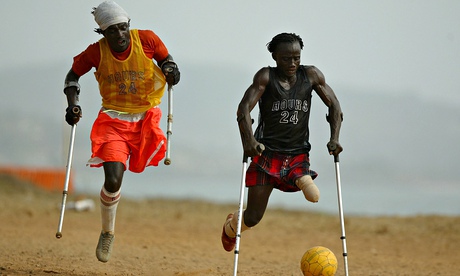 The rights of disabled people often denied, which affects their economic, social and political progress and that of their families. Photograph: Nic Bothma/EPA
The rights of disabled people often denied, which affects their economic, social and political progress and that of their families. Photograph: Nic Bothma/EPA ‘In 10 years, from the early 80s, the government plundered £1bn from the Post Office’s earnings before a penny went into the business’s own coffers.’ Photograph: Katie Collins/PA
‘In 10 years, from the early 80s, the government plundered £1bn from the Post Office’s earnings before a penny went into the business’s own coffers.’ Photograph: Katie Collins/PA A mobile phone photograph of Mohommod Nawaz holding a gun found in his possesssion and that of his brother, Hamza Nawaz, when they were arrested in Dover. They had travelled to Syria with the intention of attending a militant training camp. Photograph: -/AFP/Getty Images
A mobile phone photograph of Mohommod Nawaz holding a gun found in his possesssion and that of his brother, Hamza Nawaz, when they were arrested in Dover. They had travelled to Syria with the intention of attending a militant training camp. Photograph: -/AFP/Getty Images The new law raises the question of who the foreigner is in Israel. The Palestinians consider themselves the indigenous people of the land. Photograph: Roberto Schmidt/AFP/Getty Images
The new law raises the question of who the foreigner is in Israel. The Palestinians consider themselves the indigenous people of the land. Photograph: Roberto Schmidt/AFP/Getty Images PD James spent childhood years in Ludlow, Shropshire, before her family moved to Cambridge.
PD James spent childhood years in Ludlow, Shropshire, before her family moved to Cambridge. ‘Greening’ an economy requires the provision of alternative energy sources.
‘Greening’ an economy requires the provision of alternative energy sources.





 ‘We chose our roles in health to provide care, to diagnose and heal – not to push paper around late into the night,’ writes Michael Dixon GP. Photograph: Adrian Sherratt
‘We chose our roles in health to provide care, to diagnose and heal – not to push paper around late into the night,’ writes Michael Dixon GP. Photograph: Adrian Sherratt
 Lancaster University students’ union president Laura Clayson. ‘Your story is alarming, given the nature of your two ‘extremist’ posters: pro-Gaza and anti-shale. How close to a Tory police state are we?’ writes John Airs. Photograph: Christopher Thomond for the Guardian
Lancaster University students’ union president Laura Clayson. ‘Your story is alarming, given the nature of your two ‘extremist’ posters: pro-Gaza and anti-shale. How close to a Tory police state are we?’ writes John Airs. Photograph: Christopher Thomond for the Guardian










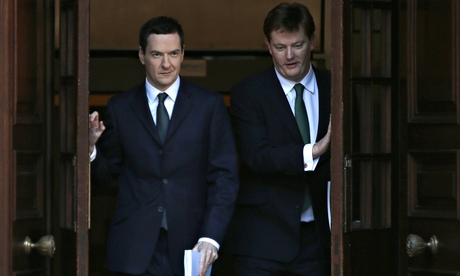 George Osborne (l) leaves the treasury to deliver his autumn statement to parliament with chief secretary of the treasury Danny Alexander. Photograph: Alastair Grant/Getty
George Osborne (l) leaves the treasury to deliver his autumn statement to parliament with chief secretary of the treasury Danny Alexander. Photograph: Alastair Grant/Getty Rosa Parks pictured in 1999. The campaigner was trained by a black women’s organisation formed to stop white men raping black women, and went on to help propel Martin Luther King to prominence after refusing to give up her bus seat to a white man. Photograph: William Philpott/Reuters
Rosa Parks pictured in 1999. The campaigner was trained by a black women’s organisation formed to stop white men raping black women, and went on to help propel Martin Luther King to prominence after refusing to give up her bus seat to a white man. Photograph: William Philpott/Reuters Former prime minister Gordon Brown announces he is standing down as an MP, 1 December 2014. Photograph: Mark Runnacles/Getty Images
Former prime minister Gordon Brown announces he is standing down as an MP, 1 December 2014. Photograph: Mark Runnacles/Getty Images




 Judges of the European court of human rights enter the hearing room. ‘The universal declaration of human rights gave us all hope after the horrors of the second world war.’ Photograph: Vincent Kessler/Reuters
Judges of the European court of human rights enter the hearing room. ‘The universal declaration of human rights gave us all hope after the horrors of the second world war.’ Photograph: Vincent Kessler/Reuters David Baddiel is wrong to say that that linking Jews with sharpness about money necessarily constitutes antisemitism; there are many such stereotypes about other groups. Photograph: David Levene
David Baddiel is wrong to say that that linking Jews with sharpness about money necessarily constitutes antisemitism; there are many such stereotypes about other groups. Photograph: David Levene Jeremy Thorpe campaigning in 1970. Photograph: Bryan Jobson/Daily Mail/Rex
Jeremy Thorpe campaigning in 1970. Photograph: Bryan Jobson/Daily Mail/Rex
 From Orient to the fields of home: three kings, shepherds, Mary and child gather in Dorset
From Orient to the fields of home: three kings, shepherds, Mary and child gather in Dorset 



 Communist partisans being arrested, December,1944. Photograph: AFP/Getty Images
Communist partisans being arrested, December,1944. Photograph: AFP/Getty Images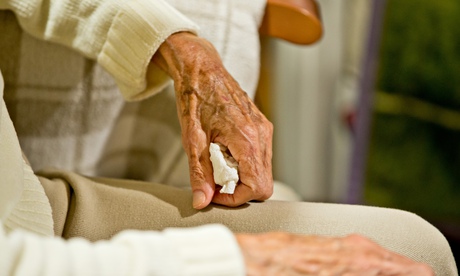 The number of elderly people with dementia is growing and hospital staff and carers need to have proper training. Photograph: Daniel Karmann/ dpa/Corbis
The number of elderly people with dementia is growing and hospital staff and carers need to have proper training. Photograph: Daniel Karmann/ dpa/Corbis











 Police covertly accessed a journalist’s Plebgate phone records on Andrew Mitchell. ‘Professional and transparent relationships with the media are an essential part of modern policing,’ write Chief Constable Colette Paul and Amanda Coleman. Photograph: Justin Tallis/Getty
Police covertly accessed a journalist’s Plebgate phone records on Andrew Mitchell. ‘Professional and transparent relationships with the media are an essential part of modern policing,’ write Chief Constable Colette Paul and Amanda Coleman. Photograph: Justin Tallis/Getty








 The Miliband family’s Christmas card for 2014. Photograph: Stefan Rousseau/PA
The Miliband family’s Christmas card for 2014. Photograph: Stefan Rousseau/PA

 ‘Rooms shared between four women and their babies cause sleep deprivation that would be against the Geneva convention for prisoners of war.’ Photograph: Lionel Wotton /Alamy
‘Rooms shared between four women and their babies cause sleep deprivation that would be against the Geneva convention for prisoners of war.’ Photograph: Lionel Wotton /Alamy



